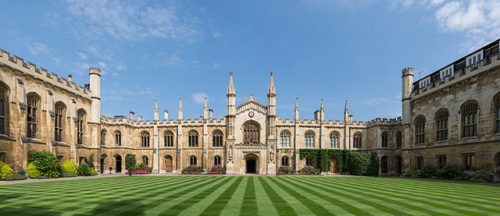By Gabriel Princewill-
Proposed changes to Cambridge University’s free-speech policy faces a fierce internal debate tomorrow, after being branded “authoritarian” by academics.
Cambridge, one of Britain’s leading Universities,
Campaigners and academics from within and outside the university are seeking to have its existing statement on freedom of speech calling on “staff, students and visitors” to be “respectful” of “differing opinions” and “diverse identities”, amended.
Over 100 scholars and senior staff have criticised the proposals, which they claim have the potential of threatening academic freedom. They have called have on members of the University’s governing body to amend the plans before the new statement is introduced
Concerns that the original statement did not sufficiently bolster freedom of speech, but impinges on that fundamental right had attracted competing views from all corners.
Nearly 400 employees from The Uk Guardian signed a joint letter to the editor of the university’s paper, opposing the decision to publish what they described as “anti-trans views”, ignited by a column on feminism by journalist Suzanne Moore.
Objectors to plans for regulated expression see the drive to curtail free speech as a form of grievance based censorship. The potential ramifications of unrestrained speech on affected groups is adjudged subordinate to the rights of individuals to freely express themselves.
Freedom of speech is a right guaranteed by the Human Rights Act 1998, though all rights are subject to limitations where they may infringe on the rights of others. Determining the academic boundaries of free speech and identifying where its limitations lie is a debate in itself.
Tolerance not respect
Dr Arif Ahmed, who is spearheading the campaign against the changes, described the new policy as “very restricting”, adding: “The problem with requiring ‘respect’ of all opinions and ‘identities’ is that ‘respect’ is vague, subjective and restrictive.”
“David Hume certainly wrote disrespectfully about the Christian religion. Am I being disrespectful to that opinion or identity if I teach or endorse his views? Who gets to decide?”
The Campaign for Cambridge Freedoms (CCF), led by Dr Ahmed, is calling on members of the University’s governing body to vote in favour of changing “respectful” to “tolerant”.
It is also wants the new policy to make it harder “to force university societies to disinvite speakers whose remarks may be controversial” and to restrict ‘no platforming’ of speakers by the university.
Vice Chancellor Professor Stephen J. Toope said : ”For many decades, freedom of expression was an accepted norm at Cambridge, requiring no formal codification. I wish that were still the case.
But the growth in recent years of legislation placing additional responsibilities on universities led us, in 2016, to reconfirm our commitment to freedom of speech in a single statement, while recognising new legal duties under the Prevent legislation that could have impinged on that freedom”.




